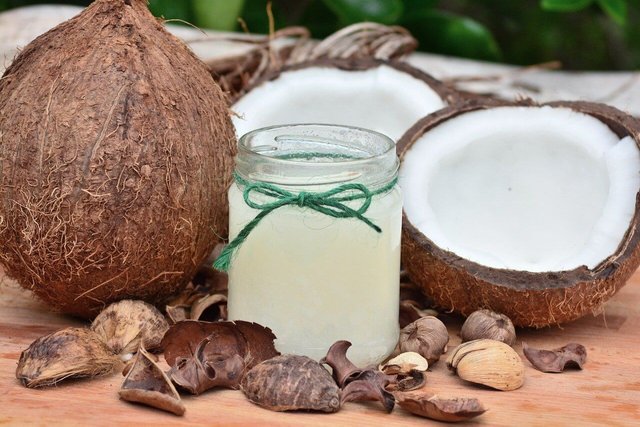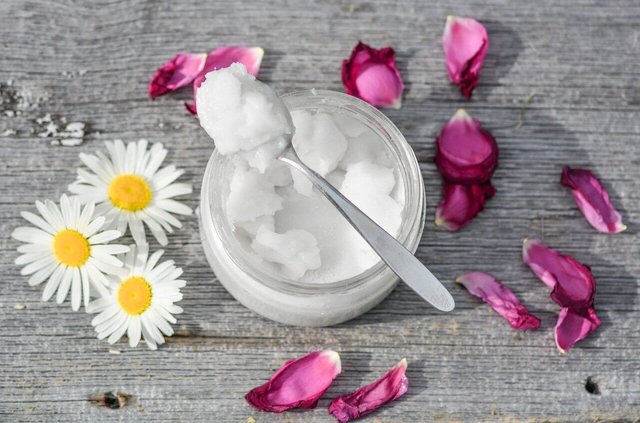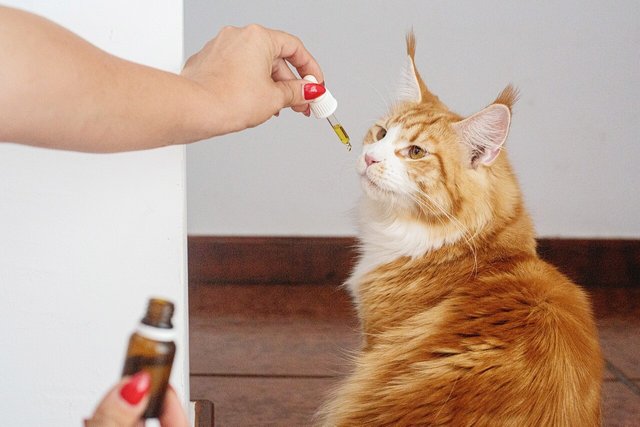Can I Give My Cat Coconut Oil?
Can I Give My Cat Coconut Oil?

Coconut oil, a healthy component to health and beauty that has seen growing popularity in use over the years. Cooking, skin care, medicinal and other purposes have seen great recognition as a versatile healthy choice. Coconut is great for people and it also serves as a healthy supplement for our pets. Coconut oil has been observed to relieve skin allergies in cats, improve a cat’s immune system and provide hydration. It’s important to note that there are some precautions to take when giving coconut oil to pets. Let’s take a pawtastic dive into coconut oil and cats!
What is Coconut Oil?

Coconuts are found around the coast of the world’s equator, they serve as a wonderful source of nutrients and craft materials for locals. Ripe coconuts contain a transparent liquid (coconut juice) along with a lining of creamy pulp. Coconut oil is the extraction and processing of this pulp into an edible oil form. Coconut oil is plant-based and organic servings are rich in saturated fats with shorter chains, allowing the, be broken down easily by the body of both humans and animals. This is one of the main factors that makes coconut oil an awesome (or pawesome) choice for cooking and dressing foods in.
Processing of coconut oil comes in a number of variation, cats and dogs at home will benefit from extra virgin coconut oil that is not fractionated nor hydrogenated. You can look for ‘unrefined’ on the label too when shopping. Contents of this form of coconut oil remain solid at room temperature. It’s important to remember that highly saturated fat content is not suitable for all cats and dietary considerations need to be kept in mind. It’s best to consult your vet before giving coconut oil to your cat, it’s a great source of ‘good fats’.
The Many Benefits of Coconut Oil for Cats
Nutritional support
Coconut oil contains lauric acid (or dodecanoic acid) helps maintain balance of the immune system, bolstering both anti-viral and anti-fungal functions.
Helps digestion
Cats can easily digest coconut oil without burdening or common side effects to their digestive system. If your cat has gastrointestinal issues, coconut oil can be a great supplement to easing their eating habits.
Nourish Fur and Skin
Coconut oil is good for a cat's fur coat. Colder months of winter bring frosty temperatures, making fur dry along with increased dander. You may notice that your cat’s hair seems thin. A closer look at their skin may reveal cracking, paws will also show signs of dehydration. Applying some coconut oil to these affected areas is a great way to moisture as an ointment for cats.

Eliminate fur balls
Cat fur balls are a common issue. Grooming is a daily activity for cats and digestion of excess hair is inevitable. Consumed hair eventually bundles into a hairball, eventually causing digestive issues and discomfort. Aside from using emetics such as cat grass, consuming moderate amounts of coconut oil can be another great natural solution to lubricate your cat’s digestive system, assisting with the expulsion of fur balls from the body.
Hidden Medication
Administering medication to cats is difficult, any cat owner that has tried to do so may resonate with this struggle. Luckily, coconut oil can make feeding medication to a fussy cat much easier. Cats can be strongly attracted to the fragrance of coconut oil, mixing medicine with a moderate amount of coconut oil can be a great way to conceal and administer needed doses to your cat without hassle. Your cat should willingly lick their tasty helping of coconut oil and medicine with joy.
Precautions to Take When Giving Cats Coconut Oil

Studies have not shown coconut oil to be toxic to cats. Consumption in small amounts is both safe and healthy for cats. However, it’s important to monitor and control the feeding of coconut oil to your cat. Ensure that overfeeding of coconut oil to your cat, a little may not seem like much but it’s certainly enough. A rough guide is to follow ¼ teaspoon of coconut oil per ten pounds of body weight for safe consumption. Signs of excessive coconut oil consumption can include abdominal discomfort and diarrhea.
Aside from discomfort and digestive issues, supplementing must be controlled with coconut oil or sudden weight gain may occur. Moderation of controlled amounts given to your cat is key to support a balanced and healthy diet. Avoid obesity through controlling the feeding of supplements and if your cat is already classed as overweight, it’s best to consult your local veterinarian first to be safe.
References:
https://www.canadianliving.com/life-and-relationships/pets/article/5-surprising-health-benefits-of-coconut-oil-for-your-cat
https://www.thesprucepets.com/is-coconut-oil-safe-for-cats-4706850
https://threebyone.eu/what-is-virgin-coconut-oil
Images used in this post are taken from sources that require no attribution
Visit - https://aipaws.com

 Steem
Steem  Twitter
Twitter  YouTube
YouTube
 Instagram
Instagram Pinterest
Pinterest Facebook
Facebook